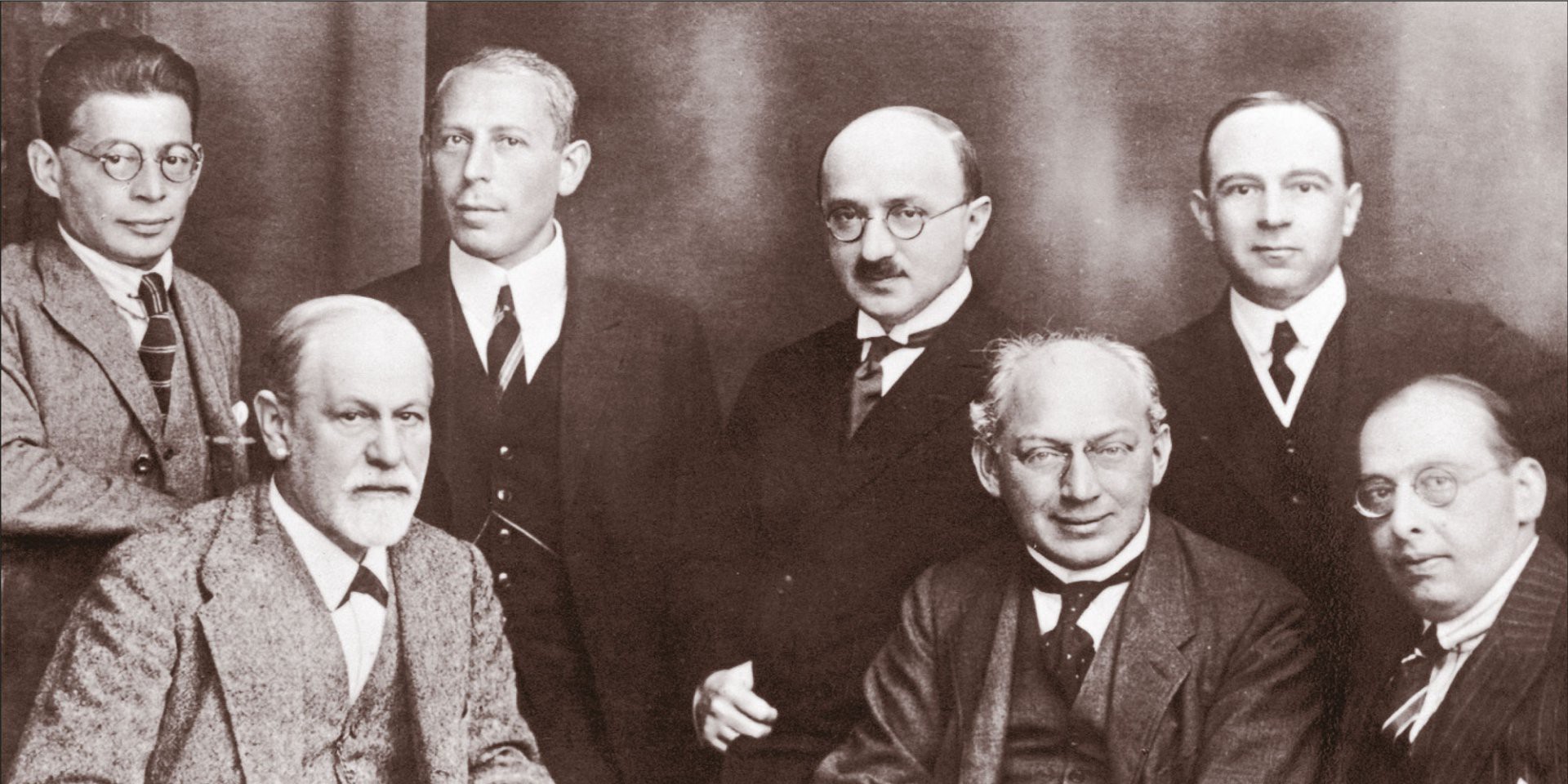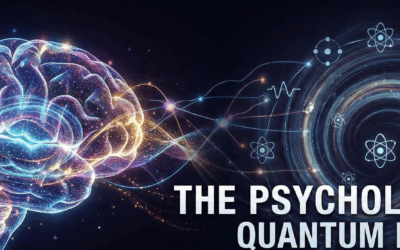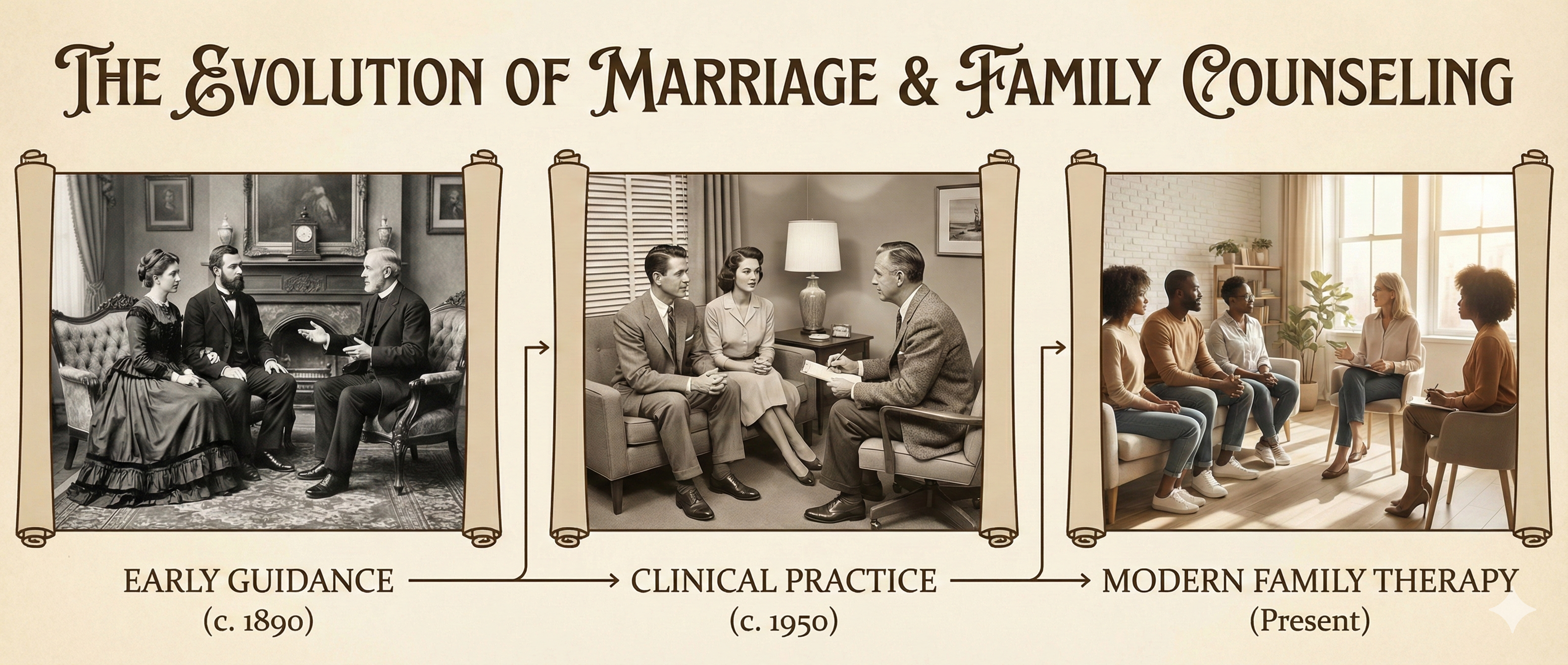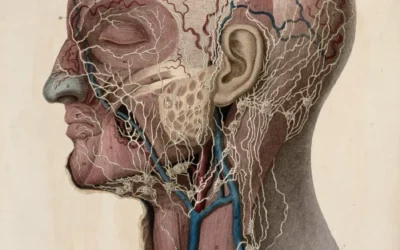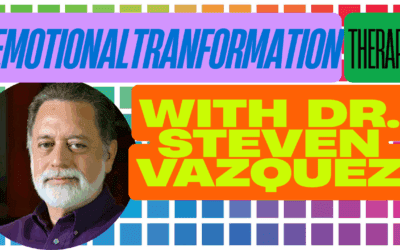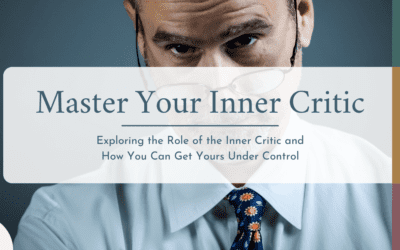What Einstein's elevator, Kekulé's snake dream, and Oppenheimer's abyss reveal about the primacy of subjective knowing, and why it matters for how we understand healing. There is a cultural artifact we all carry in our minds: the image of the genius physicist standing before a blackboard covered in chalk equations. We look at those symbols, those tensors and integrals and wave functions, and we assume that's where the truth came from. We believe the discovery emerged from the equation, that the scientist...
Psychology: Understanding the Science and Art of Mental Health
Exploring Diverse Approaches to Human Experience in Birmingham
Welcome to Taproot Therapy Collective’s exploration of psychology in all its complexity, from foundational theories to cutting-edge research shaping how we understand and treat mental health. Our psychology content bridges academic research with practical therapeutic applications while examining how different psychological approaches inform effective mental health care.
What You’ll Find in These Articles
Our psychology content covers major therapeutic modalities, from cognitive-behavioral approaches and psychodynamic theories to humanistic and transpersonal perspectives. We explore how these different frameworks understand human nature, psychological development, and the change process while examining their practical applications in Birmingham therapeutic practice.
You’ll discover articles on influential psychologists and their contributions, research findings that challenge conventional wisdom, and debates within the field about effectiveness, cultural responsiveness, and integration. We examine both the promises and limitations of psychological approaches while exploring how they complement each other in comprehensive mental health care.
Bridging Theory and Practice
These articles translate complex psychological concepts into accessible insights while maintaining scientific rigor and therapeutic relevance. From exploring attachment theory’s applications to trauma treatment to understanding how positive psychology research informs resilience building, our content shows how psychological knowledge enhances the therapeutic approaches detailed on our main services page.
We also examine emerging areas like neuropsychology, cultural psychology, and digital mental health that are reshaping the field while addressing ongoing questions about evidence-based practice explored in our psychology and research section.
Birmingham Mental Health Context
Our psychology articles often connect broader psychological principles with Birmingham’s unique cultural context, examining how regional factors, historical experiences, and community resources influence mental health understanding and treatment approaches in Alabama.
Contact Taproot Therapy Collective: 📍 2025 Shady Crest Dr. Suite 203, Hoover, AL 35216
📞 (205) 598-6471
🌐 www.GetTherapyBirmingham.com
🎧 Podcast: gettherapybirmingham.podbean.com
Discover + Heal + Grow with Taproot Therapy Collective – Birmingham’s resource for understanding psychology’s diverse approaches to mental health and human experience.
A short History Of All Types of Family Therapy
Evidence Based Practice and Research Psychology, Models of Psychotherapy, Self Help and Personal Development
A comprehensive analysis of family systems therapy models from Bowen to Narrative, including clinical applications, techniques, evidence base, and modern integrative approaches for conduct disorders, eating disorders, and trauma.
The Anatomy of Schism: A Comprehensive Historical Analysis of the Fifteen Greatest Feuds in Psychotherapy
Models of Psychotherapy, Psychology Topics and Articles, Psychotherapy Biographies: Historical Figures in the History of Psychology
An exhaustive analysis of the 15 biggest historical feuds in psychotherapy, from Freud vs. Jung to the modern Somatic vs. CBT wars. Explore the theories, the fights, and the modern verdicts.
The Great Shift: Why the Market is Moving from CBT to Somatic and Neuro-Experiential Therapies for Trauma
Evidence Based Practice and Research Psychology, History of Psychotherapy, Models of Psychotherapy, Psychology
An in-depth analysis of the paradigm shift in psychotherapy. Discover why the market, driven by trauma survivors, is moving beyond CBT to embrace faster-growing somatic and neuro-experiential therapies like Brainspotting, Somatic Experiencing, and Lifespan Integration. A comprehensive report for therapists and clients.
The IS Map: When Eye Movements Became a System
Evidence Based Practice in Therapy, Interviews and Case Studies, Models of Psychotherapy, Parts Based Therapy
Back in the 1970s, the founders of NLP claimed they'd discovered something remarkable: that you could tell what someone was thinking by watching where their eyes moved. Look up and to the right? Creating a visual image. Down and to the left? Accessing feelings. It was elegant, seductive, and as it turned out, completely unsupported by research. But here's where things get interesting. While the idea of reading thoughts through eye movements fell apart under scientific scrutiny, something else emerged. Therapists...
The Science of Light and Color in Trauma Therapy:
Color Psychology, Mental Health and Trauma Therapy in Alabama, Models of Psychotherapy
Dr. Steven Vazquez's Revolutionary Emotional Transformation Therapy In the ever-evolving landscape of psychotherapy, few innovations challenge our fundamental understanding of healing as profoundly as Emotional Transformation Therapy (ETT). Developed by Dr. Steven Vazquez over 25 years of clinical practice and research, ETT represents a paradigm shift in how we approach trauma, emotional regulation, and psychological healing. This groundbreaking therapeutic modality harnesses the power of light, color, and eye...
From Skepticism to Science: How Emotional Transformation Therapy is Revolutionizing Mental Health Treatment – A Deep Dive with MJ Denis
Alternative Medicine and Holistic Health, Models of Psychotherapy
When Light Meets Neuroscience In the ever-evolving landscape of mental health treatment, breakthrough moments often come from the most unexpected places. What if the key to unlocking trauma, dissolving anxiety, and alleviating chronic pain wasn't found in talking through problems or even in traditional brain-based therapies, but in the precise application of colored light wavelengths? This isn't science fiction or new-age mysticism—it's the cutting-edge reality of Emotional Transformation Therapy (ETT), a...
Somatic Archeology: Excavating the Body’s Hidden Histories
Somatic archeology represents a fascinating intersection of bodywork, trauma therapy, and consciousness studies that has emerged over the past several decades. This interdisciplinary approach views the human body as a living archive of experiences, memories, and inherited patterns that can be "excavated" through careful attention and specialized techniques. Unlike traditional archeology which unearths physical artifacts from the earth, somatic archeology seeks to uncover the layers of experience held within our...
Why IFS Works: Philosophy, Biology, and Neuroexperience
History of Psychotherapy, Models of Psychotherapy, Parts Based Therapy, Somatic Experiencing In Alabama
Why Internal Family Systems (IFS) Therapy Works: Exploring the Philosophical, Biological, and Neuroexperiential Foundations The Internal Family Systems (IFS) model, developed by Richard Schwartz, has gained significant recognition as an effective therapeutic approach for treating a wide range of mental health issues. This essay explores the philosophical, biological, and neuroexperiential underpinnings of IFS, shedding light on why this approach works. We will delve into the concept of multiple consciousness, the...
The Evolution of Archetypes: The Wheels of Understanding Jung Set in Motion
Comparative Religion for Therapy, Depth Psychology Approaches and Techniques, History of Psychotherapy, Jungian Therapy and Depth Psychology, Models of Psychotherapy
From Jung to Contemporary Thought Patterns of Self The concept of archetypes is one of the most enduring and influential ideas to emerge from the work of Swiss psychiatrist Carl Gustav Jung. Archetypes are universal patterns of behavior, images, and symbols that Jung believed reside within the collective unconscious of humanity. They are not individual-specific but are shared across cultures and throughout history, shaping our understanding of the world and our place within it. This paper will explore the origins...
Cognitive Behavioral Therapy: The Rocket-Finned Civic of the Therapy World
Evidence Based Practice and Research Psychology, Models of Psychotherapy
Cognitive Behavioral Therapy? In the 1990s, a peculiar trend emerged among car enthusiasts: transforming humble Honda Civics into pseudo-supercars by gluing on rocket fins, spoilers, and other garish modifications. The goal was to mimic the look of elite Ferraris and Lamborghinis without the matching performance. In many ways, this fad parallels the trajectory of Cognitive Behavioral Therapy (CBT) in the world of psychotherapy. At its core, CBT is built on the practice of linking behaviors to emotions, and...
From Analytical to Experiential: The Transformation of Post-Jungian Psychotherapy
History of Psychotherapy, Jungian Therapy and Depth Psychology, Models of Psychotherapy, Psychotherapy Biographies: Historical Figures in the History of Psychology
What Happened to Jungian Therapy After Jung Died? Carl Gustav Jung, the founder of analytical psychology, left an indelible mark on the field of psychotherapy. His groundbreaking ideas about the collective unconscious, archetypes, and the individuation process have influenced generations of therapists and continue to shape our understanding of the human psyche. However, in the years following Jung's death in 1961, the landscape of Jungian psychotherapy began to shift in ways that some argue strayed from the core...
Yoga Therapy and Trauma-Informed Yoga: Healing Mind and Body Through Mindful Practice
History of Psychotherapy, Models of Psychotherapy, Somatic Experiencing In Alabama
What is Yoga Therapy and Trauma-Informed Yoga? Yoga Therapy is a holistic approach to wellness that applies the principles and practices of yoga to promote health and facilitate healing. It goes beyond the general yoga classes found in studios and gyms, tailoring yoga practices to address specific health conditions and individual needs. Yoga therapists work one-on-one or in small groups to create personalized treatment plans that may include physical postures (asanas), breathing exercises (pranayama),...
Walking Dream Therapy: Awakening the Unconscious Through Conscious Movement
History of Psychotherapy, Models of Psychotherapy
What is Walking Dream Therapy? Walking Dream Therapy is an innovative therapeutic approach that combines elements of dreamwork, mindfulness, and physical movement to access and work with unconscious material. Developed in the early 2000s, this unique method aims to bridge the gap between the dream state and waking consciousness, allowing individuals to explore and integrate unconscious content while in an alert, embodied state. The therapy is based on the premise that the act of walking, when combined with...
Accelerated Resolution Therapy: An Evidence-Based Treatment for Trauma
History of Psychotherapy, Models of Psychotherapy, Recovering from Abuse
What is Accelerated Resolution Therapy (ART)? An Evidence-Based Treatment for Trauma Accelerated Resolution Therapy (ART) is an innovative form of psychotherapy that aims to rapidly resolve psychological trauma and other mental health issues. Developed by Laney Rosenzweig in 2008, ART combines techniques from various established therapeutic modalities to provide a brief, effective treatment for individuals struggling with the aftermath of traumatic experiences. Is Accelerated Resolution Therapy Evidence-Based?...
Zero Balancing: Harmonizing Body and Mind Through Touch
History of Psychotherapy, Models of Psychotherapy
What is Zero Balancing? Zero Balancing (ZB) is a holistic body-mind therapy developed by Dr. Fritz Frederick Smith in the 1970s. This hands-on therapeutic technique aims to align the body's energy with its physical structure, promoting overall health and well-being. Zero Balancing works with the body's skeletal system and energy fields to release tension, reduce pain, and improve overall function. The therapy is based on the principle that energy flows through the body's tissues, especially the bones. By applying...
Formative Psychology: Unveiling the Body’s Wisdom in Shaping Human Experience and Growth
History of Psychotherapy, Models of Psychotherapy
What is Formative Psychology? Formative Psychology is a comprehensive approach to understanding human development and behavior that was developed by Stanley Keleman. This innovative model emphasizes the role of the body in shaping our experiences, emotions, and personal growth. At its core, Formative Psychology views the human body as a dynamic, self-forming process that is continuously organizing and reorganizing itself in response to internal and external influences. The term "formative" in Formative Psychology...
Unlocking Relationship Potential: A Deep Dive into Mindfulness-Based Relationship Enhancement Therapy
Depth Psychology Approaches and Techniques, History of Psychotherapy, Models of Psychotherapy, Recovering from Abuse
What is Mindfulness-Based Relationship Enhancement Therapy? Mindfulness-Based Relationship Enhancement (MBRE) is an innovative therapeutic approach that combines the principles of mindfulness with relationship-focused interventions. This therapy is designed to help couples and individuals enhance their relationships by cultivating present-moment awareness, emotional regulation, and compassionate communication. MBRE builds upon the foundation of Mindfulness-Based Stress Reduction (MBSR) and adapts it specifically...
Unveiling the Power of Intensive Short-Term Dynamic Psychotherapy (ISTDP): A Comprehensive Guide
History of Psychotherapy, Models of Psychotherapy
What is Intensive Short-Term Dynamic Psychotherapy (ISTDP)? Intensive Short-Term Dynamic Psychotherapy (ISTDP) is a form of brief psychotherapy developed by Dr. Habib Davanloo in the 1960s. It is characterized by its focus on rapidly accessing and resolving unconscious conflicts that underlie emotional and psychological distress. ISTDP aims to achieve significant therapeutic change within a relatively short time frame, typically ranging from 10 to 40 sessions, depending on the patient's needs and the complexity...
Souldrama: Unveiling the Spiritual Dimension of Psychodrama
History of Psychotherapy, Models of Psychotherapy
What is Souldrama? Souldrama is an innovative therapeutic approach that integrates elements of psychodrama, spirituality, and personal growth. Developed by Connie Miller in the late 1990s, Souldrama aims to help individuals connect with their inner spiritual resources, overcome personal obstacles, and achieve greater self-awareness and fulfillment. This unique method combines traditional psychodramatic techniques with spiritual principles, creating a powerful tool for personal transformation. Souldrama operates...
Internal Attachment Therapy: A Comprehensive Guide to Healing Inner Bonds
History of Psychotherapy, Models of Psychotherapy
What is Internal Attachment Therapy? Internal Attachment Therapy (IAT) is a psychotherapeutic approach that focuses on healing and strengthening the internal bonds within an individual's psyche. This innovative model of therapy aims to address deep-seated emotional issues by working with the concept of "internal attachments" – the relationships between different parts of one's personality or self. IAT is based on the premise that many psychological difficulties stem from disrupted or unhealthy attachments...
Accelerated Experiential Dynamic Psychotherapy (AEDP): An Overview
History of Psychotherapy, Jungian Therapy and Depth Psychology, Models of Psychotherapy
What is Accelerated Experiential Dynamic Psychotherapy (AEDP)? Accelerated Experiential Dynamic Psychotherapy (AEDP) is a form of psychotherapy that integrates elements of attachment theory, affective neuroscience, and experiential therapies. Developed by Dr. Diana Fosha in the early 2000s, AEDP aims to foster transformation and healing by emphasizing the role of positive emotions, secure attachment, and the therapeutic relationship. Core Assumptions and Tenets of AEDP AEDP is grounded in the belief that humans...
Sensorimotor Art Therapy: Integrating Body, Mind, and Creativity for Holistic Trauma Healing
History of Psychotherapy, Models of Psychotherapy, Somatic Experiencing In Alabama
What is Sensorimotor Art Therapy ? Sensorimotor Art Therapy is an innovative therapeutic approach that combines principles of sensorimotor psychotherapy, art therapy, and somatic experiencing to address trauma and promote healing. This integrative method focuses on the interconnection between bodily sensations, emotional experiences, and artistic expression. By merging these elements, Sensorimotor Art Therapy offers a unique pathway for individuals to process and overcome traumatic experiences. Unlike traditional...
Unveiling Systemic Constellations: A Comprehensive Guide to Family Healing Through Generational Insights
History of Psychotherapy, Models of Psychotherapy
What is Systemic Constellations Therapy? Systemic Constellations, also known as Family Constellations, is a therapeutic approach that aims to uncover and resolve hidden dynamics within family systems. Developed by German psychotherapist Bert Hellinger in the late 20th century, this method offers a unique perspective on how familial relationships and generational patterns can influence an individual's life. The therapy involves a group process where participants act as representatives for family members or other...
Self-System Therapy (SST): An In-Depth Look at the Innovative Therapeutic Model
History of Psychotherapy, Models of Psychotherapy
What is Self-System Therapy? Self-System Therapy (SST) is a relatively new form of psychotherapy developed by clinical psychologist Richard Schwartz in the 1980s. The model conceptualizes the mind as being composed of various "parts" or subpersonalities, each with its own unique perspective, interests, memories, and viewpoint. SST proposes that every individual has a "Self" which is the core essence of who you are. The goal of therapy is to access this Self and heal the wounded parts, restoring inner harmony and...
Relational Cultural Therapy (RCT): Fostering Growth Through Connection
History of Psychotherapy, Models of Psychotherapy
What is Relational-Cultural Therapy? Relational-Cultural Therapy (RCT) is a therapeutic approach built on one foundational idea: we are shaped by our relationships, and we grow through and toward connection throughout our lives. Conversely, chronic disconnection and isolation are seen as the primary sources of psychological suffering. Developed by Dr. Jean Baker Miller and her colleagues at the Stone Center at Wellesley College, RCT challenges traditional Western psychological models that often prioritize...
Re-Teaming: Empowering Teams for Positive Change
History of Psychotherapy, Models of Psychotherapy
What is Re-Teaming? Re-Teaming is a solution-focused approach to organizational development and change management that empowers teams to identify and build on their strengths, successes, and resources to create positive change. Developed by psychologist Dr. Ben Furman and his colleagues at the Helsinki Brief Therapy Institute in Finland, Re-Teaming combines principles and techniques from solution-focused brief therapy, appreciative inquiry, and positive psychology. At the heart of Re-Teaming is the idea that...
Panic-Focused Psychodynamic Psychotherapy (PFPP): An In-Depth Look at this Innovative Treatment for Panic Disorder
History of Psychotherapy, Models of Psychotherapy
What is Panic-Focused Psychodynamic Psychotherapy? Panic-focused psychodynamic psychotherapy (PFPP) is a specialized form of psychotherapy developed specifically for the treatment of panic disorder. It combines elements of psychodynamic therapy, which focuses on unconscious psychological processes, with interventions tailored to address the underlying emotional conflicts and developmental deficits thought to contribute to panic symptoms. PFPP is a time-limited treatment, typically consisting of 24 sessions over...
Positive Psychotherapy: Harnessing Strengths for Flourishing
History of Psychotherapy, Models of Psychotherapy
What is Positive Psychotherapy? Positive Psychotherapy (PPT) is a strengths-based approach to psychotherapy that integrates positive psychology principles and research-supported interventions to promote wellbeing, resilience, and optimal functioning. Rather than primarily focusing on psychopathology, PPT emphasizes the development of positive emotions, character strengths, meaning, and healthy relationships. Is Positive Psychotherapy Evidence-Based? PPT is grounded in the empirical findings of positive...
Positive Psychotherapy: Harnessing Strengths for Flourishing
History of Psychotherapy, Models of Psychotherapy
What is Positive Psychotherapy? Positive Psychotherapy (PPT) is a strengths-based approach to psychotherapy that integrates positive psychology principles and research-supported interventions to promote wellbeing, resilience, and optimal functioning. Rather than primarily focusing on psychopathology, PPT emphasizes the development of positive emotions, character strengths, meaning, and healthy relationships. Is Positive Psychotherapy Evidence-Based? PPT is grounded in the empirical findings of positive...
Panic-Focused Psychodynamic Psychotherapy (PFPP): An In-Depth Look at this Innovative Treatment for Panic Disorder
History of Psychotherapy, Models of Psychotherapy
What is Panic-Focused Psychodynamic Psychotherapy? Panic-focused psychodynamic psychotherapy (PFPP) is a specialized form of psychotherapy developed specifically for the treatment of panic disorder. It combines elements of psychodynamic therapy, which focuses on unconscious psychological processes, with interventions tailored to address the underlying emotional conflicts and developmental deficits thought to contribute to panic symptoms. PFPP is a time-limited treatment, typically consisting of 24 sessions over...
Psychobiological Approach to Couple Therapy (PACT): A Comprehensive Guide to Relationship Healing
History of Psychotherapy, Models of Psychotherapy
What is PACT Therapy? The Psychobiological Approach to Couple Therapy (PACT) is an innovative and integrative form of couples therapy developed by Dr. Stan Tatkin. PACT combines attachment theory, neuroscience, and arousal regulation to help couples create and maintain secure-functioning relationships. This approach focuses on moment-to-moment interactions between partners, emphasizing the importance of both verbal and non-verbal communication in relationship dynamics. Is PACT Therapy Evidence-Based? PACT is...
Radically Open Dialectical Behavior Therapy (RO-DBT): An Innovative Treatment for Disorders of Overcontrol
History of Psychotherapy, Models of Psychotherapy
What is Radically Open Dialectical Behavior Therapy (RO-DBT)? Radically Open Dialectical Behavior Therapy (RO-DBT) is an evidence-based treatment developed by Dr. Thomas Lynch for disorders characterized by excessive self-control, such as chronic depression, anorexia nervosa, and obsessive-compulsive personality disorder. RO-DBT is an adaptation of standard Dialectical Behavior Therapy (DBT), originally developed by Marsha Linehan for the treatment of borderline personality disorder. Core Tenets and Assumptions...
Positive Psychotherapy: Harnessing Strengths for Flourishing
History of Psychotherapy, Models of Psychotherapy
What is Positive Psychotherapy? Positive Psychotherapy (PPT) is a strengths-based approach to psychotherapy that integrates positive psychology principles and research-supported interventions to promote wellbeing, resilience, and optimal functioning. Rather than primarily focusing on psychopathology, PPT emphasizes the development of positive emotions, character strengths, meaning, and healthy relationships. Is Positive Psychotherapy Evidence-Based? PPT is grounded in the empirical findings of positive...
Process-Oriented Psychology (Process Work) Therapy: A Comprehensive Guide
History of Psychotherapy, Models of Psychotherapy
What is Process-Oriented Psychology (Process Work) Therapy? Process-Oriented Psychology, also known as Process Work, is an innovative approach to psychotherapy that integrates Jungian psychology, physics, Taoism, and shamanism. Founded by Arnold Mindell in the 1970s, Process Work focuses on exploring the deeper meaning behind everyday experiences, body symptoms, relationships, and world events. It aims to help individuals access their innate wisdom and creativity to navigate life's challenges. Key Principles and...
Interpersonal Reconstructive Therapy (IRT): A Comprehensive Guide to Healing Relational Patterns
History of Psychotherapy, Models of Psychotherapy
What is Interpersonal Reconstructive Therapy (IRT)? Interpersonal Reconstructive Therapy (IRT) is a comprehensive psychotherapeutic approach that focuses on understanding and modifying maladaptive relational patterns rooted in early life experiences. Developed by Dr. Lorna Smith Benjamin, IRT integrates concepts from attachment theory, psychodynamic therapy, and cognitive-behavioral approaches to address complex and chronic psychological issues. At its core, IRT posits that many psychological problems stem from...
Narrative Exposure Therapy (NET): A Comprehensive Guide to Healing Trauma Through Storytelling
History of Psychotherapy, Models of Psychotherapy
What is Narrative Exposure Therapy (NET)? Narrative Exposure Therapy (NET) is a short-term, evidence-based intervention designed specifically for the treatment of trauma-related mental health conditions, particularly those resulting from multiple or complex traumatic experiences. Developed in the early 2000s, NET combines elements of cognitive-behavioral therapy, testimony therapy, and exposure therapy within a coherent narrative approach. At its core, NET involves the construction of a chronological narrative of...
Understanding NARM Therapy: A Comprehensive Guide to Healing Developmental Trauma
History of Psychotherapy, Models of Psychotherapy
What is NARM Therapy? The Neuro-Affective Relational Model (NARM) is an advanced therapeutic approach designed to address developmental trauma and attachment issues. NARM integrates top-down (cognitive) and bottom-up (somatic) interventions to work with the link between psychological issues and the body. This innovative model focuses on the connections between our biological and psychological development, emphasizing the importance of early life experiences in shaping our adult selves. Is NARM Therapy...
Method of Levels (MOL) Therapy: A Comprehensive Guide to Understanding and Applying this Innovative Approach
History of Psychotherapy, Models of Psychotherapy
What is Method of Levels (MOL) Therapy? Method of Levels (MOL) therapy is an innovative psychotherapeutic approach that focuses on helping individuals resolve internal conflicts and achieve their goals. Developed by Dr. Timothy Carey, MOL is based on Perceptual Control Theory (PCT), which posits that human behavior is driven by the control of perceptions rather than by external stimuli or reinforcement. MOL therapy aims to help clients become aware of their higher-level goals and resolve conflicts between...
Identity-Oriented Psychotrauma Therapy (IoPT): A Comprehensive Guide to Healing Through Self-Encounter
History of Psychotherapy, Models of Psychotherapy
What is Identity-Oriented Psychotrauma Therapy (IoPT)? Identity-Oriented Psychotrauma Therapy (IoPT) is an innovative therapeutic approach that focuses on addressing psychological trauma through the lens of identity formation and self-encounter. Developed by Professor Franz Ruppert, a German psychologist, IoPT is based on the premise that traumatic experiences, particularly those occurring early in life, can profoundly impact an individual's sense of self and their ability to form healthy relationships. IoPT...
Holographic Memory Resolution (HMR): A Comprehensive Guide to This Innovative Therapeutic Approach
History of Psychotherapy, Models of Psychotherapy
What is Holographic Memory Resolution (HMR) Therapy? Holographic Memory Resolution (HMR) is an innovative therapeutic approach that combines elements of traditional psychotherapy with concepts from quantum physics and holographic theory. Developed in the 1990s, HMR aims to address traumatic memories and their associated emotional and physical responses by working with the body's energy field and the holographic nature of memory storage in the brain. HMR therapy is based on the premise that traumatic memories are...
Unveiling Functional Analytic Psychotherapy (FAP): A Comprehensive Guide to Relational Healing
History of Psychotherapy, Models of Psychotherapy
What is Functional Analytic Psychotherapy (FAP)? Functional Analytic Psychotherapy (FAP) is an innovative and intensive form of talk therapy that emphasizes the power of the therapeutic relationship to create meaningful change in clients' lives. Developed in the late 1980s, FAP is rooted in behaviorism and focuses on in-the-moment interactions between therapist and client as a microcosm of the client's broader relational patterns. At its core, FAP posits that many psychological problems stem from interpersonal...
Focusing-Oriented Art Therapy: Merging Mindfulness and Creative Expression
History of Psychotherapy, Models of Psychotherapy, Psychology
What is Focusing-Oriented Art Therapy? Focusing-Oriented Art Therapy (FOAT) is a psychotherapeutic approach that combines the principles of Eugene Gendlin's Focusing method with the expressive and healing potential of art-making. It is a holistic, experiential model that emphasizes mindful attention to inner experience and the wisdom of the body to facilitate emotional healing, self-understanding, and personal growth. Is Focusing-Oriented Art Therapy Evidence-Based? While FOAT is grounded in established...
Lacanian Psychoanalysis: A Comprehensive Overview
History of Psychotherapy, Models of Psychotherapy
What is Lacanian Psychoanalysis? What is Lacanian Psychoanalysis? Lacanian psychoanalysis is a form of psychoanalytic theory and practice based on the work of French psychoanalyst Jacques Lacan. Lacan's approach built upon and reinterpreted the ideas of Sigmund Freud, focusing on the role of language and the unconscious in the formation of the self. Lacanian theory posits three fundamental registers: the Imaginary, the Symbolic, and the Real. The Imaginary refers to the realm of images, imagination and deception....
The Developmental Model of Couples Therapy: Origins, Techniques, and Modern Relevance
History of Psychotherapy, Models of Psychotherapy, Psychology of History
What is The Developmental Model of Couples Therapy? The Developmental Model of Couples Therapy is an influential approach to working with couples that was pioneered by Ellyn Bader and Peter Pearson in the 1980s. Drawing on attachment theory, object relations, differentiation, and developmental psychology, the model conceptualizes the growth of intimate relationships through a series of predictable stages. By understanding a couple's developmental stage, level of differentiation, and attachment patterns,...
Discernment Counseling: A New Approach for Couples on the Brink
History of Psychotherapy, Models of Psychotherapy
What is Discernent Counseling? Discernment Counseling is a relatively new form of brief couples therapy specifically designed for couples where one partner is "leaning out" of the relationship—and not sure that regular marriage counseling would help--and the other partner is "leaning in"—that is, interested in rebuilding the marriage. It is a short-term therapy approach aimed at helping couples on the brink of divorce gain clarity and confidence about deciding on a direction for their marriage, whether that is to...
What is Existential Analysis Therapy? A Comprehensive Guide
History of Psychotherapy, Models of Psychotherapy
A Comprehensive Guide to Existential Analysis Table of Contents Introduction Core Tenets and Assumptions History and Development Viktor Frankl: Founder of Logotherapy Influencers and Collaborators Cultural and Economic Context Relationship to Other Psychotherapy Models Key Concepts Meaning and Purpose Freedom and Responsibility Death and Finitude Authenticity Techniques and Interventions Socratic Dialogue Dereflection Paradoxical Intention Attitude Modification Stages of Treatment The Therapeutic Relationship...
Attachment-Based Family Therapy (ABFT): A Comprehensive Overview
History of Psychotherapy, Models of Psychotherapy
Attachment-Based Family Therapy (ABFT) is an empirically supported treatment for adolescent depression and suicidality that focuses on repairing attachment ruptures between adolescents and their parents. Developed by Guy Diamond, Gary Diamond, and Suzanne Levy, ABFT integrates attachment theory, structural family therapy, emotionally focused therapy, and interpersonal psychotherapy to promote secure attachment bonds and alleviate psychological distress.
Encounter-Centered Couples Therapy: A Comprehensive Overview
History of Psychotherapy, Models of Psychotherapy
What is Encounter-Centered Couples Therapy Encounter-Centered Couples Therapy (EcCT) is an innovative approach to couples therapy that emphasizes the importance of authentic, emotionally engaged encounters between partners. This article provides an in-depth exploration of EcCT, including its core tenets, development, influencers, cultural context, interventions, goals, and evidence base. Core Assumptions and Tenets EcCT is grounded in the belief that couples often struggle due to a lack of genuine, emotionally...
Attachment-Based Family Therapy (ABFT): A Comprehensive Guide to Healing Family Bonds
History of Psychotherapy, Models of Psychotherapy
What is Attachment-Based Family Therapy (ABFT)? Table of Contents Introduction Core Assumptions and Tenets Origins and Development 3.1 Founder's Biography 3.2 Influencers and Collaborators 3.3 Philosophical and Scientific Inspirations Historical Context 4.1 Cultural and Economic Forces 4.2 Clinical Practice Challenges Timeline of ABFT Development Conceptualization of Key Concepts 6.1 Trauma 6.2 The Unconscious 6.3 Sense of Self and Identity Interventions and Techniques Goals and Stages of Treatment Evidence Base...
Rational Emotive Behavior Therapy: Creating Psychotherapy Change Quickly
History of Psychotherapy, Models of Psychotherapy
Who was Albert Ellis? Rational Emotive Behavior Therapy (REBT) is a form of cognitive-behavioral therapy that focuses on identifying and challenging irrational beliefs in order to improve emotional well-being and behavioral outcomes. Developed by psychologist Albert Ellis in the 1950s, REBT has become one of the most influential and widely practiced models of psychotherapy. This article will explore the origins and core assumptions of REBT, its key techniques and interventions, evidence base, and place in...
The Hidden Influence of Parts on Parenting: Why Parents Treat Children Differently
History of Psychotherapy, Industrial Organisational Psychology, Parenting Psychology and Therapy for Parents, Parts Based Therapy, Recovering from Abuse
Explore how parental parts and unresolved childhood trauma shape differential treatment of children. Discover the hidden influence of parts on parenting and family dynamics through the lens of parts-based therapies like Voice Dialogue, Internal Family Systems, Transactional Analysis, Schema Therapy, Psychosynthesis, and Coherence Therapy. Learn how parts work can help break intergenerational cycles and cultivate more secure, attuned parent-child relationships
The Complete Dictionary of Psychotherapy
Depth Psychology Approaches and Techniques, Free Resources for Therapists in Private Practice, History of Psychotherapy, Models of Psychotherapy, Neuroscience and the Brain for Therapists, Parts Based Therapy, Psychology, Therapy and Crisis Intervention for College Students in Alabama, Therapy Resources, Tips and Tools, Understanding Neurodivergence and Neurodiversity in Therapy
Was Freud Wrong About Sexuality?
History of Psychotherapy, Jungian Therapy and Depth Psychology, Models of Psychotherapy, Phenomenology and Existential Psychology, Psychotherapy Biographies: Historical Figures in the History of Psychology
Evolution, the Divided Brain, and the Complexity of the Human Psyche Sigmund Freud, the father of psychoanalysis, is famous (or perhaps infamous) for his controversial theories that placed sexuality at the very center of the human psyche. He argued that sexual instincts and impulses, emerging from the unconscious id, were the primary drivers of human behavior, motivation, personality development, and even mental illness. But was Freud wrong about the primacy of sexuality? Insights from evolutionary psychology,...
How to Master Your Inner Critic
Locus of Control: The Psychology of High Performance and Imposter Syndrome Why do the most competent employees often feel like frauds, while the least competent overestimate their abilities? This paradox, known as the Dunning-Kruger effect, is a common observation in industrial-organizational psychology. [cite_start]However, the root cause goes deeper than simple self-awareness—it lies in the psychological concept of Locus of Control[cite: 1429]. The answer lies in where people believe the power over their lives...

